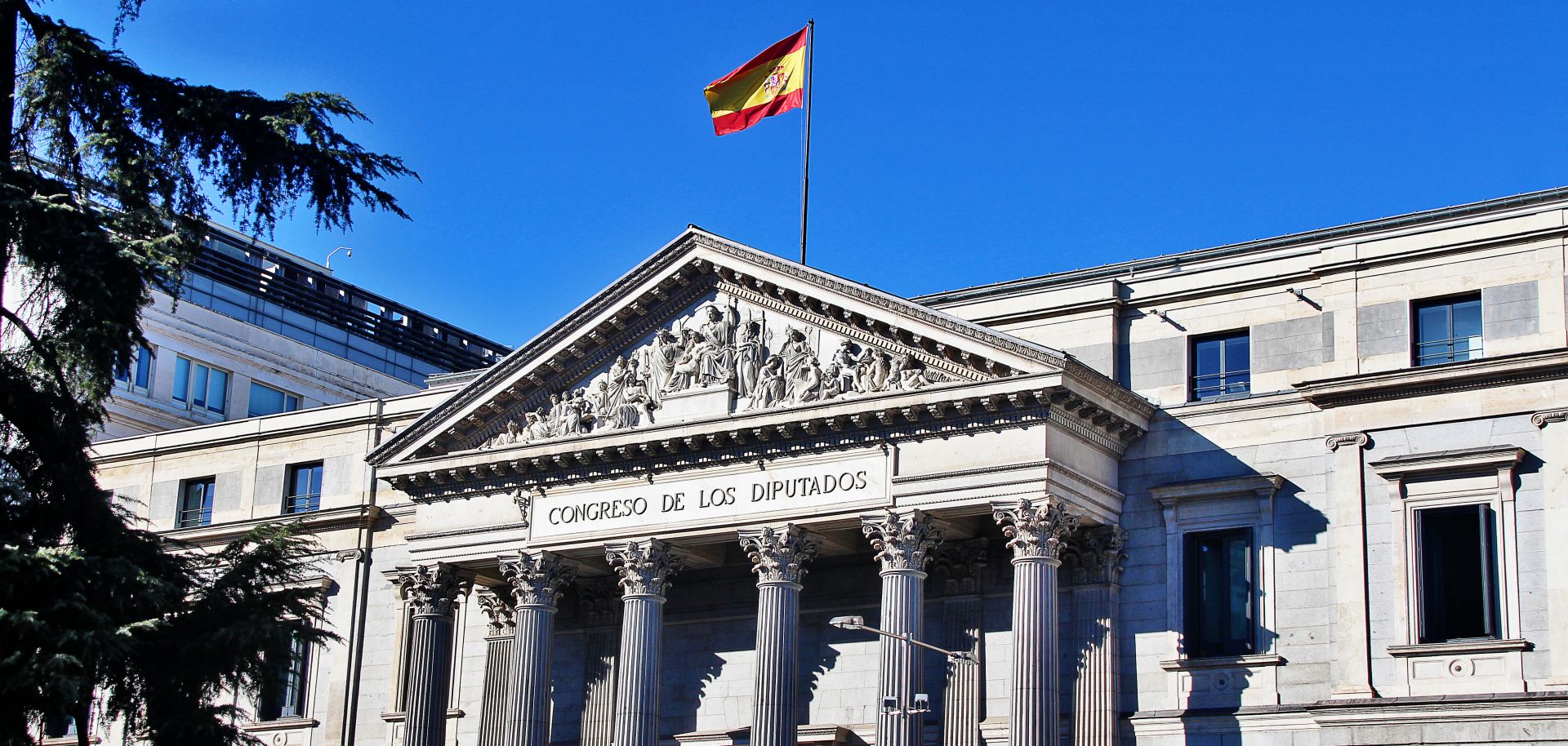ASSESSMENTS
Why Spain's New Coalition Will Struggle to Govern
Jan 8, 2020 | 09:30 GMT

Spain's Congress of Deputies building. Spain's new coalition government faces a fragmented political landscape, a slowing economy and unresolved secession disputes in Catalonia.
(b-hide the scene/Shutterstock)
Highlights
- Spain will be governed by an untested coalition that does not control a majority in parliament, which will render the policymaking process more complex and limit the new government's effectiveness.
- The Spanish economy is slowing, and a combination of risk factors (from ongoing trade disputes with the United States to unresolved secession disputes with Catalonia) will contribute to even slower growth in 2020.
- Companies operating in Spain will deal with greater fiscal pressures and a government that will seek to backtrack on some of the labor market reforms that were introduced during the peak of the economic crisis in the early 2010s.
Subscribe Now
SubscribeAlready have an account?
